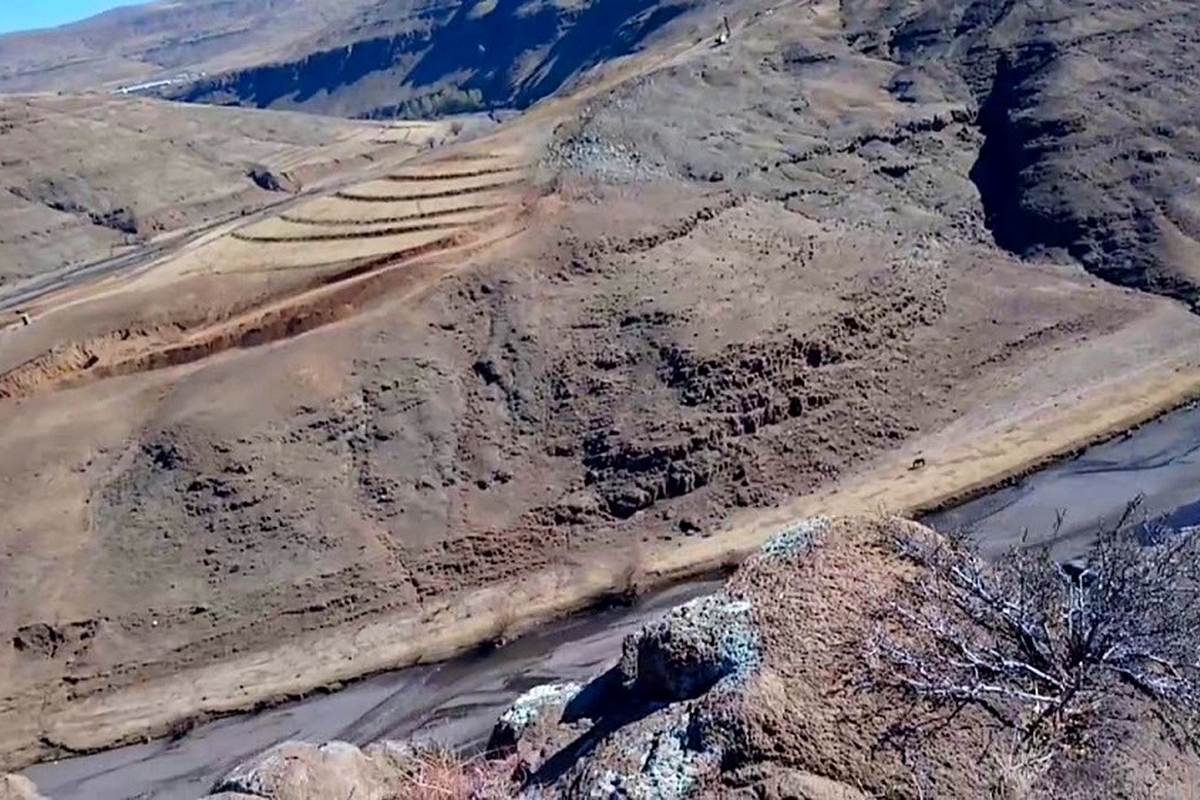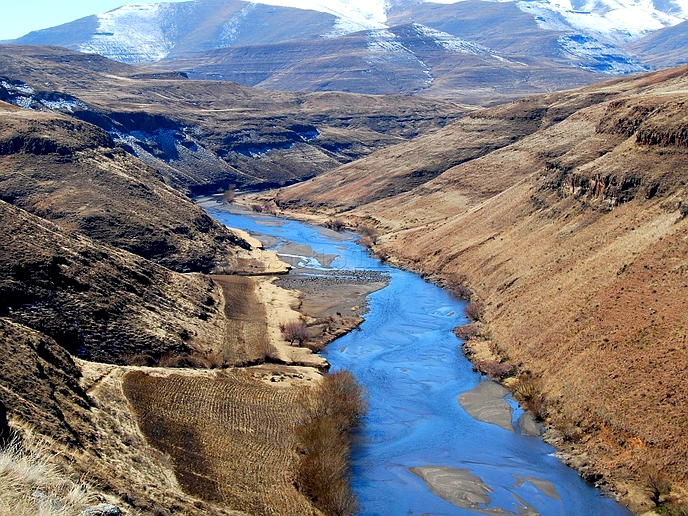A Polihali mega housing project worth an estimated M454 million resumed on January 18 to build a workers’ village and a visitors’ lodge amongst others.
business
Jan. 20, 2022
NTSAU LEKHETHO
4 min read
M454 million Polihali housing project kick-starts

The Polihali project area
Story highlights
The construction follows an award tender to the Polihali Village Joint Venture in December 2021 by the Lesotho Highlands Development Authority (LHDA).
The Polihali Village JV comprises the joint venture between Lesotho-based LSP Construction and the South African construction firm, WBHO.
The two companies were joint venture partners on the civil works and bulk utilities in Polihali and Katse which were completed towards the end of 2021.
LHDA Phase II Divisional Manager, Ntsoli Maiketso said the permanent housing would become a Phase II legacy estate.
He said energy efficiency, sustainability and sensitivity to the rural landscape underpinned its design.
The 96 units will include single quarters and one, two and three-bedroom houses which will accommodate the Polihali Dam and Polihali Transfer Tunnel consultants during the construction of the Phase II main works, and LHDA staff during and post construction.
Otherwise, the proposed four star visitors’ lodge to be constructed under this contract will be located on a vantage point overlooking the future dam and reservoir, to maximise views of the Polihali Dam which will be a major tourist attraction in the area.
The building composition and layout will be influenced by the nature of the terrain and site orientation.
The facilities developed around the Katse Dam and the Mohale Dam under similar contracts for Phase I of the Lesotho Highlands Water Project (LHWP) are still being used today and have contributed to the growth of the country’s tourism industry.
Other infrastructure to be constructed under the Polihali Village construction contract includes a recreational facility and a temporary five-classroom school.
The Phase II housing construction contracts have been designed to enable local participation, especially of small and medium-sized contractors in keeping with the terms of Article 10 of the Phase II Agreement.
They have been divided into four works packages: the construction of the Polihali Village, the construction of the Polihali Commercial Centre, the construction of the Polihali Operations Centre and the Katse More/Village upgrades contract awarded to Unik Construction in December 2021.
Procurement processes for the remaining two contracts are at an advanced stage.
Polihali Infrastructure Consultants comprising the South African-based Mott MacDonald PDNA (Pty) Ltd and Khatleli Tomane Moteane Architects (Pty) Ltd of Lesotho was awarded the contract for the planning, design and construction supervision of the Project housing and associated infrastructure in 2015.
Phase II of the Lesotho Highlands Water Project builds on the successful completion of Phase I in 2003.
The LHWP delivers water to the Gauteng region of South Africa and utilises the water delivery system to generate hydroelectricity for Lesotho. Phase II will increase the current water supply rate of 780 million cubic metres per annum incrementally to approximately 1 270 million cubic metres per annum.
The increased water flow will simultaneously increase the energy generated by the ’Muela hydropower plant, a further step in the process of securing an independent power supply to meet Lesotho’s domestic needs. The hydropower further feasibility studies have confirmed that conventional hydropower is the preferred option for Phase II.
Three potential sites were identified: two on the Senqu River and a third site at Oxbow on the Malibamatšo River.
The Lesotho Highlands Water Project (LHWP) is a multi-phased, multi-billion maloti/rand project between the governments of the Kingdom of Lesotho and the Republic of South Africa.
Enjoy our daily newsletter from today
Access exclusive newsletters, along with previews of new media releases.
It comprises water transfer and hydropower generation components with associated ancillary developments.
The water transfer component entails the construction of dams and tunnels in Lesotho, enhancing the use of water from the Senqu (Orange) River and its tributaries by storing, regulating, diverting and controlling the flow to effect the delivery of specified quantities of water to South Africa, and utilising the delivery system to generate hydro-electric power in Lesotho.
The major works of Phase I included the construction of the Katse Dam, the transfer and delivery tunnels, Matsoku Weir, ’Muela Hydropower Plant and the Mohale Dam.
The Phase II water transfer component comprises a dam in Polihali and a gravity tunnel that will connect the reservoir in Polihali with the Katse reservoir.
The further feasibility studies for the hydropower component of Phase II have concluded that conventional hydropower is the more feasible option to meet Lesotho’s energy needs.
Three potential sites were identified: two on the Senqu River and a third site at Oxbow on the Malibamatšo River. The Lesotho Highlands Development Authority (LHDA) is the implementing and management authority of the Lesotho Highlands Water Project, on behalf of the government of Lesotho.






